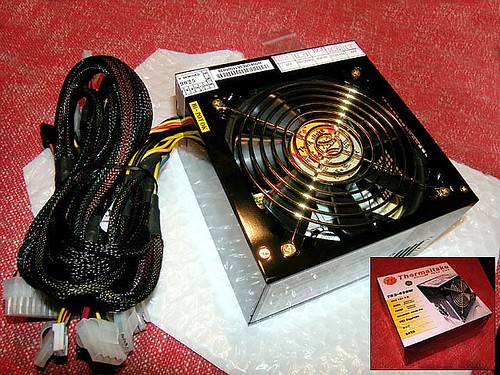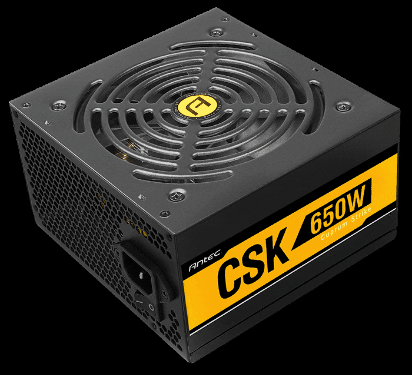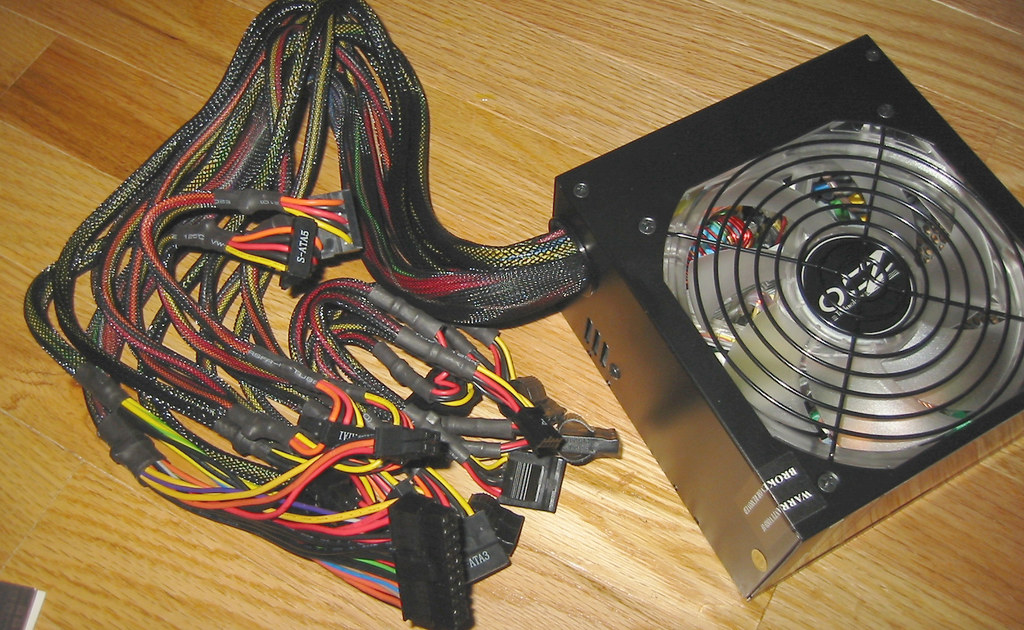Understanding Computer Power Supply Units (PSUs)

A computer power supply unit (PSU) is a critical component of any computer system, responsible for converting the alternating current (AC) from the wall outlet into direct current (DC) that powers the various components of the computer. The quality and efficiency of the PSU can significantly impact the overall performance and stability of the system. Selecting the appropriate PSU is essential for ensuring that the desired power levels, voltages, and connector types are compatible with the hardware installed in the computer.
One of the fundamental specifications of a power supply unit is its wattage. This measurement indicates the maximum amount of power the PSU can deliver to the components. For high-end gaming computers or systems outfitted with multiple graphics cards, it is critical to select a PSU with sufficient wattage to support the demand of all components, especially under peak load conditions. Conversely, lower-end gaming setups may require less power and can function efficiently with a PSU that offers lower wattage.
The voltage produced by the PSU also plays a crucial role. Standard computer components typically require specific voltage levels, such as +3.3V, +5V, and +12V. A reliable power supply unit guarantees that these voltage levels remain stable, preventing fluctuations that could lead to hardware malfunctions or even failure. Additionally, the variety of connectors available on a PSU is vital for compatibility with different components, ranging from traditional 4-pin connectors for CPUs to PCIe connectors for graphics cards.
In conclusion, understanding the function and specifications of power supply units is essential for anyone looking to build or upgrade a computer. A well-chosen PSU not only ensures the smooth operation of high-end gaming rigs but also provides stable performance for low-end systems, thereby forming the backbone of an efficient computing environment.
Calculating Your Power Needs
Understanding your computer’s power requirements is crucial when selecting an appropriate power supply. Effective calculation of wattage is primarily dependent on the components within your system, as each hardware component contributes differently to overall power consumption. Central Processing Units (CPUs) and Graphics Processing Units (GPUs) are among the most significant contributors, typically consuming a substantial portion of the total wattage required.
To begin, identify the power consumption of each major component in your build. High-performance CPUs and GPUs, often utilized in gaming and professional workstations, can demand significant power, sometimes exceeding 300 watts per component. Additionally, other elements such as hard drives, solid-state drives, and optical drives can add anywhere from 10 to 30 watts, depending on their specifications. Furthermore, peripherals such as additional cooling fans, RGB lighting, and external accessories can also amplify the power needs of your computer.
To simplify this process, consider using online wattage calculators. These tools allow users to input information about their hardware components, often producing an accurate estimation of the required wattage for an effective and safe computer power supply. It is advisable to aim for a power supply that offers slightly more wattage than the calculated needs to accommodate future upgrades and ensure efficiency. Most experts recommend having at least 20% more capacity than the sum of your hardware’s power requirements.
In gaming applications, where the demand can fluctuate rapidly, it is particularly important to choose a reliable power supply that can handle spikes in power draw. For business applications, a stable and well-rated power supply can contribute to overall system longevity. Ultimately, understanding how to calculate your specific power needs will ensure that your chosen computer power supplies are both sufficient and effective for your computing requirements.

The Impact of Computer Power Supply on Performance
The power supply unit (PSU) in a computer is often underestimated when it comes to its significance in overall system performance. Nevertheless, the quality and capacity of computer power supplies play a crucial role in defining how well the hardware components operate. A high-quality power supply ensures that the computer receives a stable, clean, and adequate flow of electricity, which is vital for maintaining operational efficiency. Conversely, using a subpar PSU can lead to inefficiencies and performance limitations, potentially bottlenecking the performance of the entire system.
One of the most significant impacts of a power supply on performance is its ability to maintain stability under heavy loads. During intensive tasks such as gaming or video rendering, hardware components demand more power. If the power supply is unable to meet these demands efficiently, it can result in voltage fluctuations, causing instability. This can manifest in multiple ways, including system crashes, stuttering, and random shutdowns—factors that can significantly disrupt productivity and user experience.
Moreover, an insufficient power supply can lead to performance drops during demanding sessions. For example, when a graphics card or CPU is unable to receive the power it requires, it may throttle its performance to prevent damage. This throttling entails utilizing less power, resulting in slower rendering times and reduced frame rates in games, ultimately frustrating users who expect optimal performance. Thus, a reliable and adequately powerful PSU is essential for ensuring that all components function at their full potential without risk of failure.
In conclusion, the relationship between a computer’s power supply and overall performance cannot be overlooked. Investing in a quality power supply not only enhances stability and efficiency but is vital for optimizing the capabilities of both current and future hardware components.
Matching PSUs with Gaming Setups
When selecting a power supply unit (PSU) for gaming setups, it is crucial to consider the specifications and requirements of your specific build. Different gaming configurations necessitate varying power levels to ensure optimal performance. This section offers a comprehensive breakdown of suitable PSU options, categorized by low-end, mid-range, and high-end gaming systems.
For entry-level gaming setups, typically utilizing integrated graphics or low-demand discrete GPUs, a PSU with a wattage range of 400 to 500 watts is generally sufficient. Models such as the Corsair CV450 or EVGA 500 W1 provide a reliable source of computer power supplies for systems that run on less demanding components. These units are often 80 PLUS certified, offering decent efficiency for budget-conscious gamers.
Mid-range setups, which may incorporate graphics cards like the NVIDIA GTX 1660 or AMD RX 5600 XT, typically require more power, usually in the range of 550 to 650 watts. Reliable power supply options for such builds include the Seasonic S12III 600 or the Thermaltake Smart 600W. These models ensure adequate headroom for additional components and potential upgrades down the line.
For high-end gaming configurations that utilize advanced components, such as NVIDIA RTX 3080 or AMD RX 6800 XT, selecting a power supply in the 750 to 850-watt range is paramount. Units like the Corsair RM850x or the EVGA SuperNOVA 850 G5 provide not only the necessary power but also top-notch efficiency ratings and modular cabling options, which enhance airflow and system organization.
By identifying the wattage requirements of each type of gaming setup and matching them with appropriate PSU models, one can ensure that the chosen computer power supplies support the system’s performance. Understanding these elements is essential to avoid potential issues related to over or under-powering your gaming rig.

Brand Overview: Who Makes the Best Power Supplies?
When choosing the right computer power supplies, it is essential to consider the reputation and quality of the manufacturers. Several reputable brands dominate the market, each offering unique strengths and characteristics that cater to different user needs.
Corsair is renowned for its innovative designs and high reliability. Their range of power supplies, such as the RMx series, has received numerous accolades for efficiency and performance. Customers consistently praise their modular design, which promotes better cable management. However, some users have reported that Corsair power supplies can be on the pricier side, making them a less suitable choice for budget-conscious builders.
EVGA is another prominent name in the industry, adjusting its offerings to cater to both entry-level users and high-end enthusiasts. Their power supplies, particularly the SuperNOVA series, are known for excellent performance, extensive warranties, and excellent customer support. However, some reviews have noted that while their products often perform well, they may not always match the efficiency ratings of competitors like Seasonic.
Seasonic has built a reputation for producing some of the most reliable power supplies available. The manufacturer is known for using high-quality components, which contribute to longer life and better performance. Their Prime series, in particular, has garnered impressive ratings from both users and third-party testing. That said, some consumers may find their designs less aesthetically pleasing compared to other brands.
Other noteworthy manufacturers include Antec, Cooler Master, and Thermaltake. While they offer a variety of options at competitive prices, their overall reliability and performance ratings can vary significantly from one model to another. It is important for potential buyers to investigate customer reviews and ratings before making a purchase decision.
Understanding the strengths and weaknesses of different power supply brands helps users select the best computer power supplies that align with their needs and budget.
High-Cost vs. Affordable PSU Models
When selecting a power supply for a computer, consumers often grapple with the decision between high-cost models and more affordable options. Premium power supplies are generally composed of higher quality components, which contribute to their extended durability and reliability. These models frequently feature superior capacitors, which can withstand higher temperatures and offer better performance over time. In contrast, budget-friendly power supplies may utilize lower-grade materials, resulting in a shorter lifespan and increased likelihood of failure.
Efficiency ratings are another crucial aspect distinguishing high-cost and affordable power supplies. Many premium units boast 80 Plus certifications, which signify a power supply’s efficiency under various load conditions. A higher certification, such as 80 Plus Gold or Platinum, indicates that the PSU operates at a higher energy efficiency rate, wasting less power and translating to lower electricity bills. Budget models, however, may not prioritize efficiency, potentially leading to lower performance and higher energy costs in the long run.
Warranties also vary significantly between high-cost and affordable computer power supplies. Premium models often come with extended warranties, sometimes spanning up to ten years, signaling manufacturers’ confidence in their products. Conversely, budget options might provide limited warranties, placing greater risk on users should the unit fail shortly after purchase.
Additional features, such as modularity and effective cooling, are commonly found in higher-end PSUs. Modularity allows users to detach unused cables, promoting better airflow and cable management within the computer case. This feature is especially appealing for gamers and professionals who strive for a tidy and efficient setup. Affordable models may lack this feature, potentially leading to complications in building and managing modern setups.
In weighing the pros and cons of both categories, potential buyers must consider their specific needs and budget constraints. High-cost power supplies offer numerous benefits that could justify the investment, particularly for gaming and business setups requiring reliability and efficiency. However, for casual users, budget-friendly models might still provide satisfactory performance, making them a viable alternative.
Safety Features and Standards
When selecting computer power supplies, safety features play a pivotal role in ensuring the longevity and performance of your system. Modern power supplies are equipped with various mechanisms designed to protect both the unit itself and the components it powers. Among these features, over-voltage protection (OVP) is crucial. OVP prevents excess voltage from damaging sensitive electronics, providing a safeguard against power surges that can occur during unforeseen electrical events.
Additionally, under-voltage protection (UVP) is equally important. It ensures that the voltage output does not drop below a certain threshold, which can lead to instability in system performance. The presence of UVP helps maintain a reliable power supply, crucial for tasks requiring constant and stable voltage, such as gaming and high-performance computing.
Short circuit protection (SCP) is another essential feature found in today’s computer power supplies. This mechanism immediately cuts power when it detects a short circuit, safeguarding both the power supply and the components connected to it. Such protection is critical in preventing irreversible damage that could result from a sudden surge of current.
Furthermore, compliance with industry safety standards such as the ATX specification and certifications like UL or CE signifies that a power supply has undergone rigorous testing to meet safety and performance benchmarks. These certifications instill confidence in the consumer, ensuring that the power supply incorporates necessary safety features and is built reliably.
Incorporating these safety features not only protects your investment in computer components but also contributes to a more stable and efficient system. Choosing computer power supplies with these protective measures is essential for anyone looking to build a robust computing environment.
Future-Proofing Your Computer Power Supply Choice
When selecting a power supply unit (PSU) for a computer, it is crucial to consider the potential future upgrades that may occur as technology advances. As users seek to enhance their computing experience, the demand for power-hungry components, such as high-performance graphics cards and advanced processors, continues to rise. Consequently, future-proofing your power supply choice becomes essential to ensure that it can sustain these upgrades without issues.
One of the primary trends influencing the design and output of computer power supplies is the increasing wattage requirements of emerging technologies. Recent generations of gaming components, for instance, have demonstrated a proclivity for higher energy consumption, necessitating PSUs with increased capacity. Therefore, investing in a power supply with a higher wattage rating than what is currently required ensures that the system can comfortably accommodate future expansions, such as additional GPUs or enhanced cooling systems. Users are encouraged to anticipate their future power needs and select a PSU that will not only support their current build but also allow for flexibility in upgrades.
Moreover, efficiency ratings provided by certifications such as 80 Plus are instrumental in making informed decisions regarding power supply selections. A higher efficiency rating indicates that the PSU operates with less energy waste, translating to lower electricity costs and cooler operation. This aspect becomes particularly advantageous when considering the longevity of hardware components, especially as newer devices often benefit from stable power delivery. As consumers prepare for future modifications, prioritizing quality and efficiency in a power supply unit will play a significant role in ensuring reliable performance in the long term.
Conclusion: Making the Right Choice
Choosing the appropriate computer power supply is crucial for ensuring optimal performance and reliability of your system. Throughout this guide, we have examined various factors that contribute to the selection process, emphasizing the importance of compatibility, wattage requirements, and efficiency ratings. Each of these elements plays a significant role in determining whether a power supply unit (PSU) meets the demands of your hardware, be it for gaming, professional work, or general use.
First and foremost, understanding the power requirements of all components is essential. High-performance graphics cards and processors often necessitate more robust power supplies than standard configurations. Therefore, assessing your current and future needs can prevent inadequate power delivery, which may result in instability or hardware failure. By carefully calculating total wattage, you can reliably select a PSU that not only meets your current requirements but also allows room for potential upgrades.
In addition to wattage, considering the efficiency rating of computer power supplies is paramount. Higher efficiency ratings, such as those certified by 80 PLUS, indicate reduced energy waste and lower electricity bills, which is beneficial for both your finances and environmental impact. Moreover, a high-efficiency power supply often translates into longer lifespan and improved performance, making it a prudent investment.
Ultimately, it’s crucial to align your choice with your specific objectives—be it gaming, graphic design, or office tasks. As you finalize your decision, revisit the calculations and considerations discussed throughout this guide. A well-thought-out choice in power supply not only enhances your computer’s performance but also contributes to long-term satisfaction with your system. A diligent review of your requirements and a thorough comparison of available options will ensure a reliable foundation for your computing needs.
